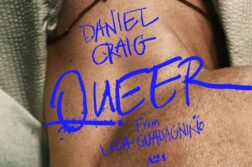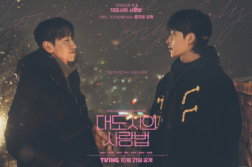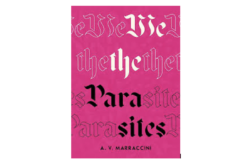In the twenty years that the American Library Association (ALA) has been tracking the number of attempts to ban books and restrict library resources, 2022 was a record year with over 1,500 books targeted for removal. Amidst the ongoing book bans that conservative organizations are implementing across the country, the case has never been more dire for LGBTQ representation in modern literature. “The unprecedented number of challenges we’re seeing … reflects coordinated, national efforts to silence marginalized or historically underrepresented voices and deprive all of us – young people, in particular – of the chance to explore a world beyond the confines of personal experience,” said ALA President Lessa Kananiʻopua Pelayo-Lozada in a September 2022 ALA press release.
Book bans are happening in many of the same states that are banning access to gender-affirming healthcare; so the issue is much deeper than erasure from literary representation, it seeks to erase the very existence of queer individuals from our culture. This threat of erasure has spiked sales for queer young adult novels, but the history of book bans tells us that the target of censorship is always changing.
Literary censorship is older than the printing press itself, with many of the first book bans driven by puritanical religious leaders. By the 19th Century, many states banned anti-slavery sentiments, leading to the historical release of Harriet Beecher Stowe’s Uncle Tom’s Cabin, which exposed the inherent cruelty of slavery. The title would be publicly burned by slave masters across the South. Simultaneously, leaders of the Union banned pro-Confederate literature in the North.
The 1873 passage of the Comstock Act made it federally illegal to send “obscene, lewd, immoral or indecent” publications through the mail. The law also made it a misdemeanor for anyone to sell, give away, or possess an obscene book, pamphlet, picture, drawing, or advertisement. The law targeted materials about birth control, forcing access to family planning information underground.
The Jim Crow Era brought about book ban attempts such as textbooks that didn’t offer a sympathetic view of the Confederacy, and a children’s book depicting different colored rabbits getting married, alluding to the acceptance of interracial relationships. By the 1950s, bans on materials about communism and socialism ensued.
Public school libraries became a battleground for what information students should have access to, leading to the 1982 Supreme Court case of Island Trees Union Free School District v. Pico, which ruled that “Local school boards may not remove books from school libraries simply because they dislike the ideas contained in those books.”
Despite the Supreme Court ruling in favor of the First Amendment Rights of students, book bans in public schools are more rampant than ever before, with Texas alone banning nearly double the books of any other state in 2022. Public libraries face losing their funding for not banning books at the demands of conservative political leaders.
ALA’s Director of the Office of Intellectual Freedom Deborah Caldwell-Stone told The New York Times, “Young people are going through these experiences and they are hungry for information. To remove those books denies that opportunity for education, and is also an act of erasure, a very stark message that you don’t belong here, your stories don’t belong here.”
Now more than ever, we must rally behind independent queer authors to continue to create during this time of systemic silencing. We must not turn a blind eye to local elections and school board meetings in our communities when these decisions impact informational resources for the youth of our nation.
Independent booksellers are emerging in this fight; Shop Queer.co is an independent online bookshop that splits profits with queer authors, doubling their income from the sale of a book, and embodying its mission to support queer authors during this time of increasing anti-LGBTQ+ hatred.
Librarians and concerned citizens alike have formed a national initiative called Unite Against Book Bans to empower readers everywhere to stand together in the fight against censorship. Additionally, Banned Books Week is an annual initiative every September that brings together authors, librarians and scholars to share perspectives on censorship and resources to support library workers.
Imagine you’re twelve years old again. Think of the way your clothing was beginning to feel weird against your body, stretching in new places. Remember how you started feeling butterflies in the pit of your stomach when you walked by your secret crush, hoping to steal a glance before anyone could see? Do you remember ruminating about the person you were becoming, and wondering what the people that have always loved you would think if they knew your innermost thoughts?
It’s the day of the book fair, and your parent gives you an allowance to go find some summer reading. But as you browse the shelves and book titles, the covers don’t look like you. The characters don’t tell a story like yours.
Now imagine that you’re the adult that your twelve-year-old self needed. The adult they would have looked up to, the adult they would have loved, the adult they would have trusted. You’re handing a book to twelve-year-old you: an adventure that will provide you with new ideas and a new perspective. A story that will make your twelve-year-old self feel seen and heard for the first time. What is that book?
We must fight to keep that book on the shelves, and in the hands of young adult readers.
 Arend Richard is the author of Being Found, the sci-fi series following a gay protagonist’s journey of finding someone else to love while finding oneself. Growing up gay in the Bible Belt Midwest, Richard wrote the series “for my 14-year-old self that searched the library for hours looking for a gay character I could relate to.”
Arend Richard is the author of Being Found, the sci-fi series following a gay protagonist’s journey of finding someone else to love while finding oneself. Growing up gay in the Bible Belt Midwest, Richard wrote the series “for my 14-year-old self that searched the library for hours looking for a gay character I could relate to.”
Richard is no stranger to censorship: the Denver-based Creative and vlogger launched his own social media platform WeedTube, permitting and promoting cannabis content when Big Social banned cannabis content in 2018. WeedTube became certified as a LGBT-owned business by the National LGBT Chamber of Commerce in 2022, and continues to fight online censorship through their website and mobile app.







